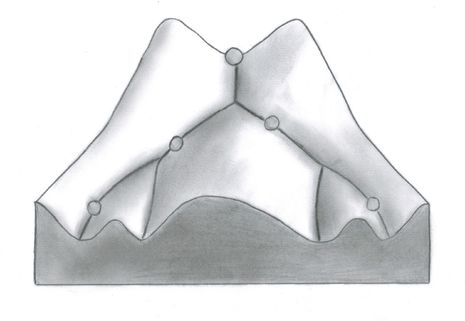Is epigenetics the secret to eternal youth?
Milena Aarts analyses the anti-ageing skincare claiming to change our DNA

Anti-ageing products are advertised everywhere so I wasn’t surprised to see yet another advert, this time for an anti-ageing serum from Eucerin. I did, however, do a double take when I saw that it was being called an ‘epigenetic serum’. Is ‘epigenetic’ just the next buzzword that advertisers use to sell their products, or could this be the future of anti-ageing technology?
“Is ‘epigenetic’ just the next buzzword that advertisers use to sell their products, or could this be the future of anti-ageing technology?”
The term epigenetics was first used by a Cambridge alumnus, Conrad Waddington, in the 1940s (before the discovery of the structure of DNA). The prefix ‘epi’ is derived from the Greek meaning ‘on’ or ‘upon’, and epigenetics refers to mechanisms of inheritance that occur in addition to genetics.
Epigenetics as we understand it today is the addition of chemical groups to DNA which fine-tunes how genes are expressed. One of the most common epigenetic modifications is the methyl group (CH3), which, when bound to DNA, decreases the expression of a gene. Changing the expression of genes in a cell allows the cell to become more specialised. This can be visualised best by Waddington’s famous ‘epigenetic landscape’ which shows a marble rolling down an incline into a specific trough: an analogy for a cell differentiating irreversibly until it is specialised.
Epigenetics is arguably most interesting, however, as it shows the effect environmental factors can have on our genetic code. This was identified when researchers studied data from the Dutch Hunger Winter in 1944-45: a famine that occurred as a result of German occupation during World War Two. Epidemiologists looked at how the famine affected birth weights of babies whose mothers were malnourished during pregnancy. They found that the mean birth weight was smaller due to below-average methylation of a growth factor gene which codes for a growth hormone. It’s now thought that these epigenetic changes occurred in the womb, with long lasting effects: these individuals carried these modifications to their DNA throughout the rest of their lives. Research has shown that certain epigenetic changes can be inherited by offspring, and the next step in analysis of the Dutch Hunger Winter is to discover whether this is an instance where epigenetic changes persisted into the next generation.
“Should we offer people the ability to change the expression of their DNA without scientific knowledge of the potential effects?”
So how are cosmetic companies using epigenetics to formulate anti-ageing creams and serums? This question is perhaps more tricky to answer. Eucerin claims that their active ingredient ‘Epicelline’ corrects hypermethylation of DNA which inactivates so-called “youth genes”. The mechanism through which they have managed to achieve this remains vague. Additionally, it is left ambiguous as to which genes are the “youth genes”. It is therefore hard not to find their claims dubious. On the other hand, if Epicelline really does change expression of genes that control the way our skin looks, this is potentially concerning, especially when we know, from events such as the Dutch Hunger Winter, the lasting and potentially heritable effects epigenetic changes can have.
This presents several ethical questions. Could epigenetic products give us a false sense of security? For example, is someone less likely to apply sunscreen if they believe that any negative consequence to their skin could be reversed? Furthermore, if epigenetic skin care does become a powerful and effective product, should it be over-the-counter or prescribed? It’s hard to imagine a medical circumstance in which anti-ageing serum would need to be prescribed, however, should we offer people the ability to change the expression of their DNA without scientific knowledge of the potential effects?
What’s certain is that epigenetics is likely to be a prevalent word in cosmetic products as well as medicine in the future. For instance, there are exciting epigenetic therapies in the works such as so-called epi-drugs which work to enhance tumour suppressor genes in order to treat cancer. However, when it comes to commercial products, epigenetics is not just a buzzword, and highlights the importance of understanding just what we’re paying for.
 Interviews / You don’t need to peak at Cambridge, says Robin Harding31 December 2025
Interviews / You don’t need to peak at Cambridge, says Robin Harding31 December 2025 News / Unions protest handling of redundancies at Epidemiology Unit30 December 2025
News / Unions protest handling of redundancies at Epidemiology Unit30 December 2025 Comment / What happened to men at Cambridge?31 December 2025
Comment / What happened to men at Cambridge?31 December 2025 Features / ‘Treated like we’re incompetent’: ents officers on college micromanagement30 December 2025
Features / ‘Treated like we’re incompetent’: ents officers on college micromanagement30 December 2025 Theatre / We should be filming ADC productions31 December 2025
Theatre / We should be filming ADC productions31 December 2025








